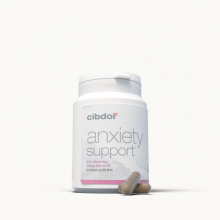Overcoming Anxiety at Night: Tips & Treatments
Last updated:
Published:
The Link Between Anxiety and Sleep:
Anxiety disorders can have a significant impact on our sleep, often leading to sleep disturbances. This can result in poor sleep quality, sleep deprivation, and difficulty falling asleep.
Contents:
- The Link Between Anxiety and Sleep:
- Physical Symptoms of Nighttime Anxiety
- Treatment Options for Nighttime Anxiety
- Lifestyle Changes to Reduce Nighttime Anxiety
- Creating a Comfortable Sleep Environment
- Techniques for Calming Nighttime Anxiety
- FAQs in Relation to Anxiety at Night
- Why is Anxiety Worse at Night?
- How to Overcome Nighttime Anxiety
- Coping Skills for Anxiety
- Types of Coping Strategies for Anxiety
- Conclusion
It's important to note that nighttime anxiety is common but treatable with the right help. Understanding the links between anxiety and sleep is crucial for maintaining physical and emotional wellness.
In short, various types of anxiety disorders are linked with sleep disturbances. Generalized anxiety disorder, panic disorder, post-traumatic stress disorder, and other anxiety disorders can worsen anxiety symptoms at night. This can lead to panic attacks and other sleep-related issues.
But don't worry. There are effective treatments available for managing nighttime anxiety. Cognitive behavioral therapy, relaxation exercises, deep breathing, and other techniques can help reduce anxiety and improve sleep quality.
It's also important to address any underlying medical conditions that may be contributing to sleep disturbances, such as obstructive sleep apnea.
Overall, managing anxiety and improving sleep quality go hand in hand. By addressing anxiety symptoms and implementing healthy sleep habits, you can improve your overall well-being and quality of life.
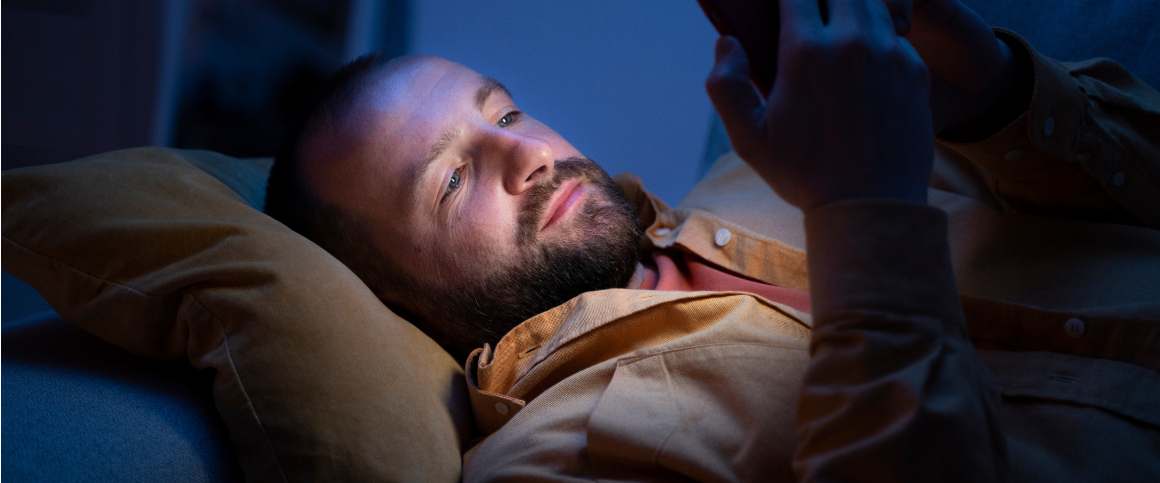
Physical Symptoms of Nighttime Anxiety
When nighttime anxiety creeps in, it can manifest through various physical symptoms. These symptoms might leave you tossing and turning, making it even harder to fall asleep. But don't worry. We're here to help you understand these pesky signs so that you can take control of your nighttime anxiety.
Heart Palpitations
Anxiety-induced heart palpitations can cause an overwhelming feeling of your heart pounding in your chest, potentially leading to feelings of panic.
Breathing Difficulties
Shortness of breath or hyperventilation are common among those experiencing nighttime anxiety, leading to feelings of suffocation and panic.
Sweating
Night sweats can be a sign that your body is responding to stress and anxious thoughts while trying to drift off into dreamland.
Lightheadedness
If the room starts spinning when lying down, this could indicate an increase in anxiety levels during bedtime hours.
Treatment Options for Nighttime Anxiety
Let's dive into the world of treatments that can help you manage nighttime anxiety. There are various options available to suit your needs and preferences, from therapy to medications.
Antidepressants: These Selective Serotonin Reuptake Inhibitors (SSRIs) are often prescribed for depression but can also be effective in reducing anxiety symptoms.
Benzodiazepines: Commonly known as tranquilizers, these medications provide short-term relief from anxiety by calming the central nervous system. Due to their addictive and dependency-forming nature, caution should be taken when using these medications.
Beta-blockers: Typically used for heart conditions, beta-blockers have been found helpful in managing physical symptoms of anxiety such as trembling or rapid heartbeat. Talk to your doctor if this might be a suitable option for you.
Sleeping pills: Sometimes prescribed when insomnia is severe or persistent; however, it's essential not to rely on them long-term since they may lose effectiveness over time and could lead to dependency issues.
Alternative Approaches
In addition to traditional medical treatments, some people find success with alternative approaches like cognitive behavioral therapy (CBT), which has proven effective in treating insomnia-related problems.
Lifestyle Changes
Don't forget about the power of lifestyle changes. Here are some suggestions:
- Avoid caffeine before bedtime and reduce intake in the afternoon.
- Exercise regularly to improve sleep quality and duration.
- Create a consistent sleep schedule to help your body establish a natural rhythm.
Consulting with a medical expert can be beneficial in selecting the right approach to handling nocturnal anxiety, as there is not one universal answer. No single approach is effective for all in regards to dealing with nighttime anxiety.
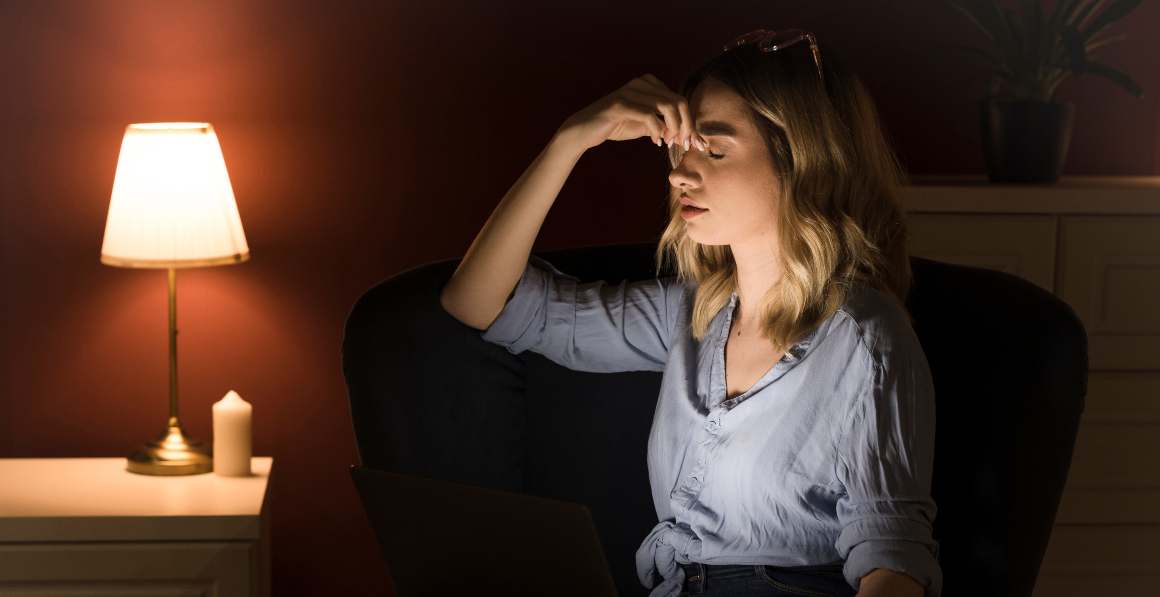
Lifestyle Changes to Reduce Nighttime Anxiety
Let's face it, nighttime anxiety can be a real party pooper. But fear not. Confronting those anxious thoughts is possible with a few lifestyle adjustments. Ready? Let's dive in.
Relaxation Techniques
Relaxation techniques, such as deep breathing exercises and progressive muscle relaxation, can help calm your mind before bedtime. Give them a try and watch your nighttime anxiety melt away like ice cream on a hot summer day.
Scheduled Worry Time
Sounds counterintuitive, right? But setting aside specific worry time during the day helps prevent those racing thoughts from invading your precious sleep hours.
Avoiding Caffeine
It's no secret that caffeine can keep you awake at night. Cutting back on caffeinated beverages, especially in the afternoon and evening, will help reduce nighttime anxiety and improve your sleep quality.
Deep breathing exercises promise quick relief from stress and anxiety by activating our body's natural relaxation response. So go ahead - take that deep breath and let go of all the tension.
There you have it. Put these modifications into practice and you can start to experience a calmer slumber. Realizing the necessity of a good night's rest for one's overall health and happiness is essential. So don't let nighttime anxiety steal those precious Zzzs.
Creating a Comfortable Sleep Environment
Let's converse regarding slumber, hmm?
Did you know that creating a cozy and comfortable sleeping environment can significantly help in reducing nighttime anxiety?
Well, now you do.
So let's dive into some actionable tips to make your bedroom an oasis of calm.
Eliminating Blue Light Exposure
The first step is simple: ditch the screens before bedtime.
Blue light emitted by electronic devices disrupts melatonin production, making it harder for you to fall asleep.
Create a pre-bedtime routine that doesn't involve screens - try reading a book or practicing relaxation techniques instead.
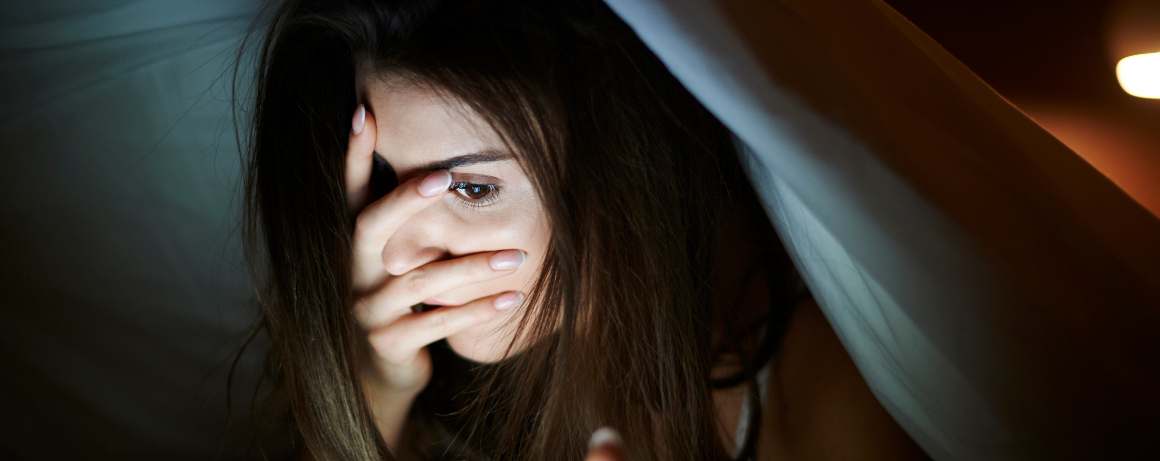
Investing in Quality Sleep Products
Your bed should be your sanctuary.
A supportive mattress and comfy pillows are essential for good quality sleep and reduced Anxiety at night.
Investing in quality sleep products, such as a weighted blanket or a white noise machine, can also help reduce anxiety disorders and improve sleep quality.
Maintaining Optimal Room Temperature and Darkness
A cool room temperature (around 65°F) is considered ideal for sleep, so adjust your thermostat accordingly.
Blackout curtains or a good quality eye mask can help block out any unwanted light that might interfere with your slumber.
Creating a Calming Atmosphere
Aromatherapy is not just for spas.
Essential oils like lavender and chamomile have been shown to promote relaxation and improve sleep quality.
Add some calming scents to your bedroom using an essential oil diffuser or even just a few drops on your pillowcase.
If your attempts to relax have been unsuccessful, consider seeking assistance from a medical expert. Poor sleep can worsen anxiety and lead to medical conditions such as sleep deprivation, generalized anxiety disorder, panic attacks, panic disorder, post-traumatic stress disorder, and obstructive sleep apnea. Cognitive behavioral therapy, relaxation exercises, and deep breathing can also help reduce anxiety in stressful situations.
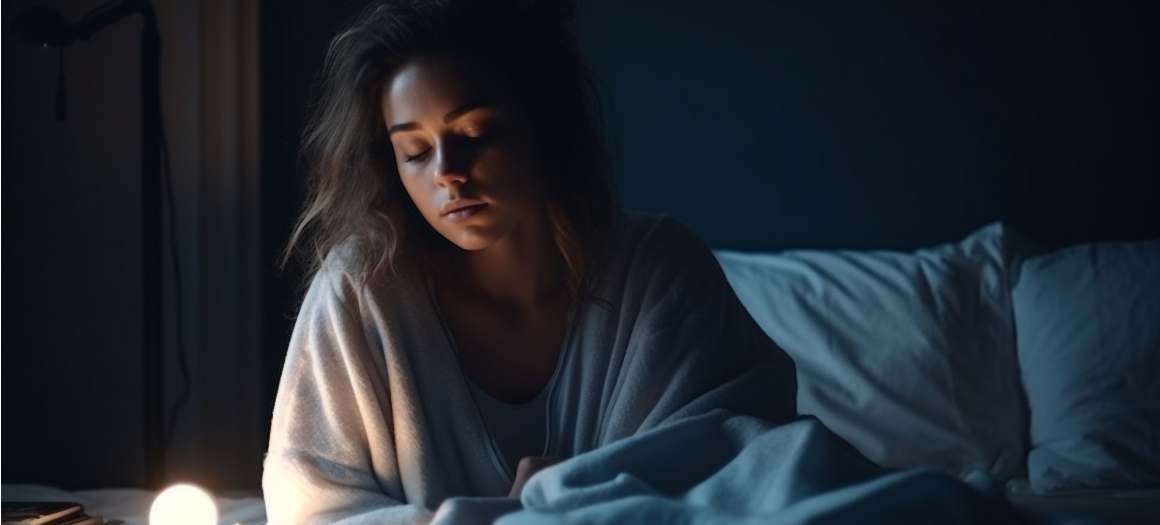
Techniques for Calming Nighttime Anxiety
Imagine this: it's nighttime, and you're struggling with anxiety.
You need a solution to regain control of your emotions and promote better rest.
Thankfully, there are techniques that can help calm those pesky anxiety attacks.
Meditation
Meditation, an ancient practice that has endured for centuries, is the first technique to help ease anxiety.
Studies show that regular meditation helps reduce stress levels and improve overall well-being.
To get started, find a quiet space where you won't be disturbed, sit comfortably, close your eyes, and focus on your breath or a chosen mantra.
Grounding Techniques
Anxiety often causes our minds to race into the future or dwell on past events; grounding techniques bring us back to the present moment.
- The 5-4-3-2-1 Technique: Identify five things you can see around you. Then four things you can touch. Three sounds you hear. Two smells in the air. And finally, one thing about yourself (e.g., "I am safe").
- Breathing Exercises: Try deep breathing exercises like square breathing (inhale for four counts, hold for four counts, exhale for four counts) or diaphragmatic breathing (deep breaths from your belly).
- Sensory Experiences: Engage with objects around you - feel their texture or temperature - to help ground yourself in the present.
Remember, practice makes perfect.
The more you incorporate these techniques into your daily routine, the better equipped you'll be to handle nighttime anxiety.
If anxiety disorders continue to worsen despite trying these methods, don't hesitate to reach out to a healthcare professional for guidance and support.
Sweet dreams.
FAQs in Relation to Anxiety at Night
Why is Anxiety Worse at Night?
Anxiety can be worse at night due to a combination of factors, including increased fatigue, reduced distractions, and hormonal changes. The absence of daytime activities may cause the mind to focus more on worries and stressors. Additionally, nighttime cortisol levels drop, which could contribute to heightened anxiety.
How to Overcome Nighttime Anxiety
To overcome nighttime anxiety, try establishing a consistent sleep routine, practicing relaxation techniques such as deep breathing or meditation before bed, limiting exposure to screens in the evening hours, and creating a comfortable sleep environment. If your nighttime anxiety persists despite these efforts, consider seeking professional help from a therapist or psychiatrist.
5 Coping Skills for Anxiety
- Mindfulness meditation
- Deep breathing exercises
- Cognitive restructuring (challenging negative thoughts)
- Progressive muscle relaxation
- Aerobic exercise
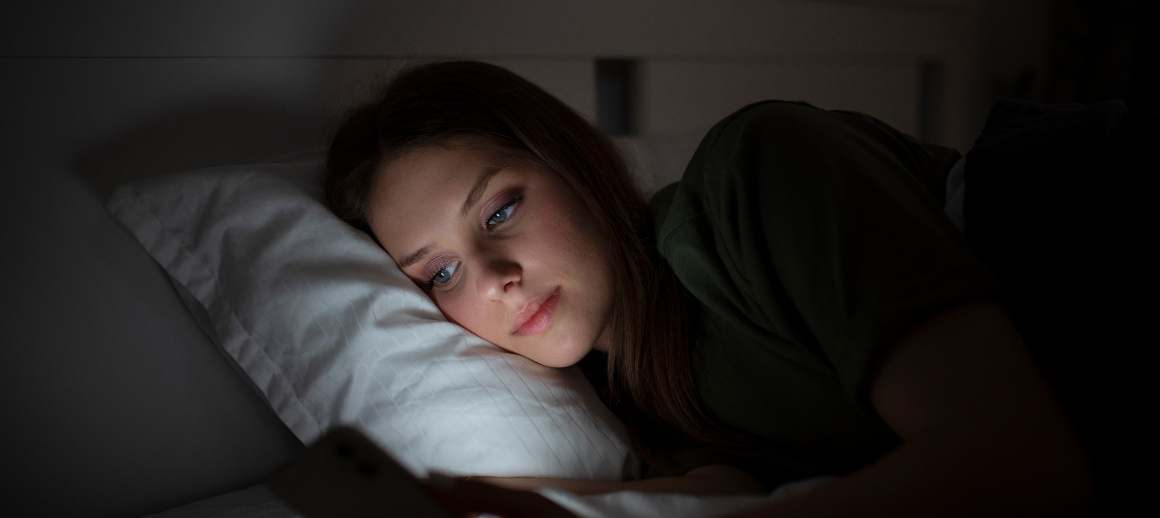
Types of Coping Strategies for Anxiety
The four main types of coping strategies include problem-focused strategies (e.g., time management), emotion-focused strategies (e.g., journaling), social support-seeking strategies (e.g., talking with friends), and avoidance-based strategies (which should be used sparingly). It's important to find what works best for you based on your individual needs and preferences.
Conclusion
Experiencing anxiety at night can be a frustrating and exhausting experience. However, there are various medical treatments, behavioral therapies, and lifestyle changes that can help alleviate symptoms of nighttime anxiety. Knowing the assorted kinds of anxiety disorders and their connected signs can aid individuals in teaming up with medical personnel to determine the most suitable treatment for them.
Relaxation techniques, such as deep-breathing exercises and meditation, may also provide relief from nighttime unease. Additionally, creating a comfortable sleep environment by reducing noise levels and establishing a consistent sleep schedule may promote better quality sleep.
If you or someone you know is having difficulty managing nighttime anxiety, reach out to Project for assistance. Our team offers resources and guidance to help individuals manage their mental health effectively.









